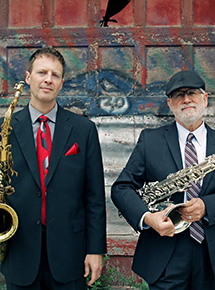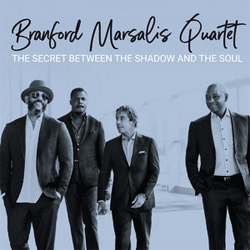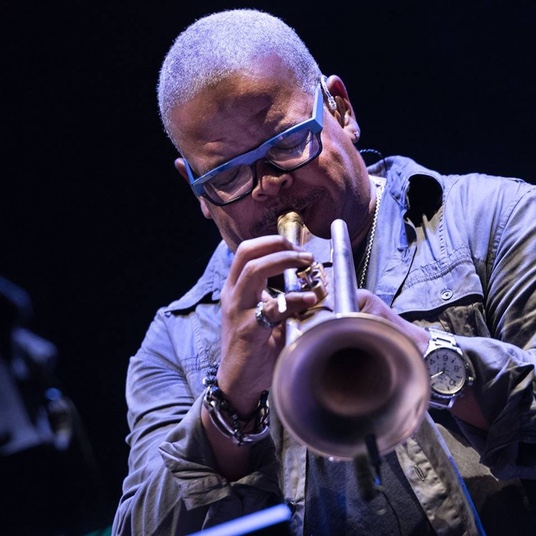Saxophonists Steve Woods and Carl
Cafagna have been mainstays on Detroit’s jazz scene for decades. Cafagna made a
bulletproof reputation for himself as a key member of the wildly popular gypsy
jazz group the Hot Club of Detroit, and Woods crafted a sound on tenor that calls
to mind the era of bop greats Dexter Gordon, Eddie “Lockjaw” Davis, and Coleman
Hawkins. About a decade back, Woods and Cafagna formed the duo known as the
Detroit Tenors and have performed off and on since. The duo’s growing fanbase
wondered when they’d record an album. Last month, the duo released the
self-titled “Detroit Tenors” on the Detroit Music Factory label. Finally, a
document exists of what a terrific team Woods and Cafagna are. They put their signature
touches on 12 beloved standards. The recording is fire from top to bottom,
embodying the fervor created decades ago on landmark recordings by tenor duos
such as Coleman Hawkins and Ben Webster, Sonny Stitt and Gene Ammons, Dexter
Gordon and Johnny Griffin and in recent times Eric Alexander and Vincent Herring.
The cut on “Detroit Tenors” likely to get played repeatedly is the duo’s
rendering of “Blues Up and Down”.
The Branford Marsalis Quartet has been
together for over 20 years with only one recent personnel change. The hiring of
the outstanding drummer Jason Faulkner who replaced the quartet’s longtime
drummer Jeff “Tain” Watts. Watts was a driving force no doubt, but the quartet never
lost any of its muscle when Watts split. Evidence of that is two outstanding
albums the quartet made “Four MFs Playing Tunes,” and “The Secret Between the
Shadow And The Soul. “The latter recently out nationwide on Marsalis Music/
OKeh. I concur with those who proclaim “The Secret Between The Shadow And The Soul”
to be the quartet’s best album to date. The album straddles the fence of free
jazz. It’s public knowledge the quartet can go both ways. Anyway, there are only
seven tracks here. Save for “Snake Hip Waltz,” composed by pianist Andrew Hill,
and “The Windup” by Keith Jarrett, the other cuts are originals by members of
the quartet. Each cut could be regarded as the standout. And from start to the
album’s conclusion the quartet is in lockstep. Amazing how Marsalis, Revis,
Faulkner and Calderazzo can read each other’s thoughts. Reckon that’s the
result of 20-plus years of swinging together.
Jazz drummer Ralph Peterson is a former
Jazz Messenger, the musical institution co-founded by the legendary jazz
drummer Art Blakey, and which over the years produced many of the jazz world’s
leading bandleaders and soloists. Peterson perhaps more than any ex-member has
continued Blakey’s legacy through his playing – true after all these years Peterson
still sounds at times like Blakey did during his prime – and his past mentoring
of current jazz stars such as trumpeter Sean Jones and saxophonist Tia Fuller,
both respected and accomplished bandleaders. The past two months Peterson has
been touring the states with ex-Messengers, Bobby Watkins, Geoff Keezer, Brian
Lynch, Billy Pierce, and Essiet Essiet, promoting the new live double-disk
album “Legacy Alive Vol. 6 at the Side Door.” There’s not much you can comment
about this all-star band that has already been documented. So far “Legacy Alive”
is the best album I have spent time with. It seems as if Blakey’s ghost was present
for every tune chosen for this terrific tribute to the institution Blakey hand-built
brick by brick. Warning this recording is so hard-driving it may damage the listener’s
eardrums. The finesse and fire that each member developed while in Blakey’s
employ remains in tow.



